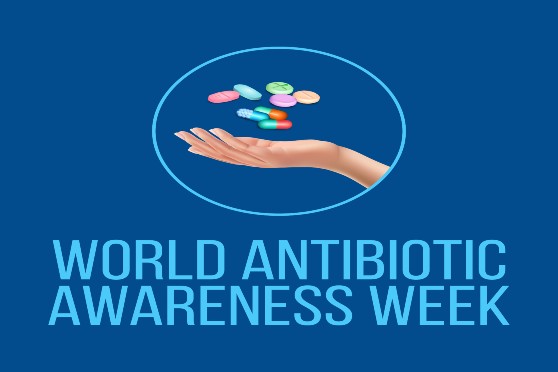Amity University Mumbai observes World Antimicrobial Awareness Week


The Amity Institute of Biotechnology at Amity University, Mumbai, will conduct a seven-day programme, in collaboration with the Microbiological Society India, from November 18 to 24 to observe World Antimicrobial Awareness Week. It is an international campaign led by the World Health Organisation (WHO). On November 24, a panel discussion will be held with Anuj Sharma, WHO India; Satya Sivaraman, ReAct Asia Pacific; Arvind Madhavrao Deshmukh, professor and head, Department of Microbiology, Babasaheb Ambedkar Marathwada University, Aurangabad; Sumana K, assistant professor, Department of Microbiology, JSS Academy of Higher Education and Research, Sri Shivarathreeshwara Nagara, Mysuru, Karnataka and Aruna Poojary, head of department, Pathology & Microbiology, Breach Candy Hospital Trust, Mumbai, Maharashtra.
The programme is aimed at raising awareness about antibacterial resistance (AMR) development because of overuse, misuse or improper use of antimicrobial agents such as antibiotics. The theme of the programme is ‘Spread Awareness, Stop Resistance’.
The event was inaugurated on November 18 with a keynote lecture by Nerges Mistry, the director of The Foundation for Medical Research, Mumbai. The lecture titled ‘None so blind than those who will not see’ covered different aspects of antibacterial resistance (AMR) such as misuse of antibiotics, the impact of AMR on the environment, the importance of preventive strategy and more. Additionally, she also illustrated the prevention of the spread of airborne pathogens such as Mycobacterium tuberculosis as a better strategy for preventing tuberculosis as well as multidrug resistance and extensive drug resistance.
“When a bacterium is exposed to antibiotics to protect itself from the harmful effects of antibiotics, it changes the sequence of a few genes in its genome. This may lead to alteration of antibiotic target sites within the bacterial cells thus leading to the development of drug resistance. To detect such sequence-based alterations in bacterial genes, whole-genome sequencing techniques have been explored to identify such underlying mutations. These gene mutations are also transferred to neighbouring microorganisms thus making an entire lot antibiotic-resistant. With the advent of the industrial revolution, various types of industries have bloomed over the years,” Mistry said.
World Antimicrobial Awareness Week is observed across the country with the active participation of undergraduate, postgraduate and doctorate students. Events such as digital poster making, short video making on antibacterial resistance and article writing competitions are held.